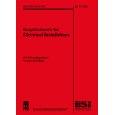Hello All.
I'm new, but I've searched for an answer to this and can't quite find it. I'm building a new house and need to get en electrical connection. EDF energy wants to know projected power requirements in the form of Kilo-Volt Amps, which I understand are broadly comparable to Kilowatts (identical for light bulbs, slightly different for "reactive" loads).
I can work out the theoretical maximum load (kettle on every socket), but that never ever happens. So what sort of figure are they looking for. Does it have to be accurate or will ball-park do?
One issue is that I am considering electrical storage heating, but might not. So should I just go with a three-phase connection and be done with it, or will that be stupidly expensive if not needed?
Thanks for your help!
G
I'm new, but I've searched for an answer to this and can't quite find it. I'm building a new house and need to get en electrical connection. EDF energy wants to know projected power requirements in the form of Kilo-Volt Amps, which I understand are broadly comparable to Kilowatts (identical for light bulbs, slightly different for "reactive" loads).
I can work out the theoretical maximum load (kettle on every socket), but that never ever happens. So what sort of figure are they looking for. Does it have to be accurate or will ball-park do?
One issue is that I am considering electrical storage heating, but might not. So should I just go with a three-phase connection and be done with it, or will that be stupidly expensive if not needed?
Thanks for your help!
G



